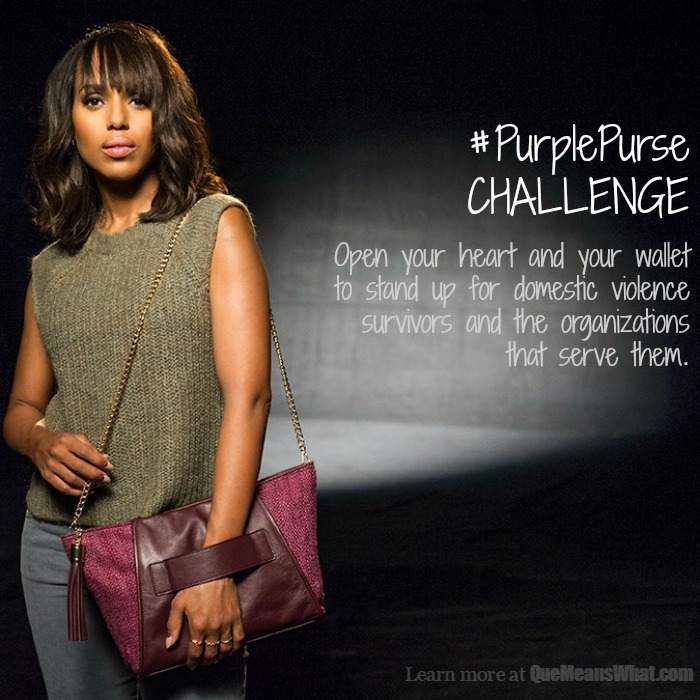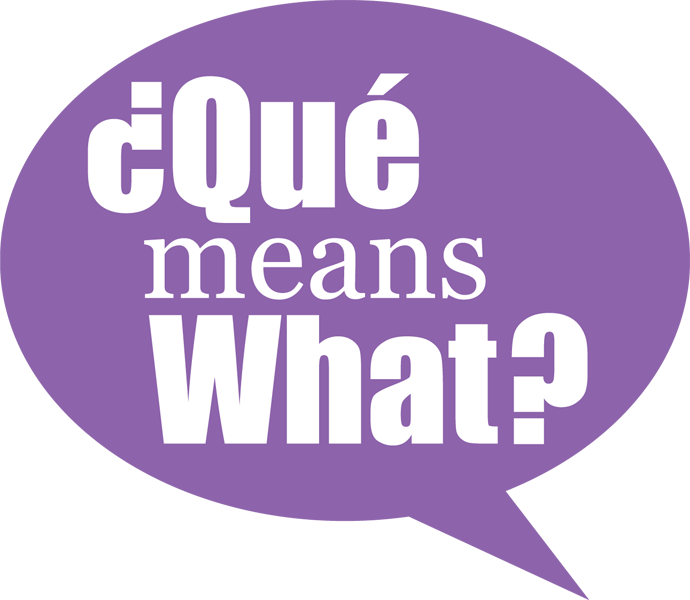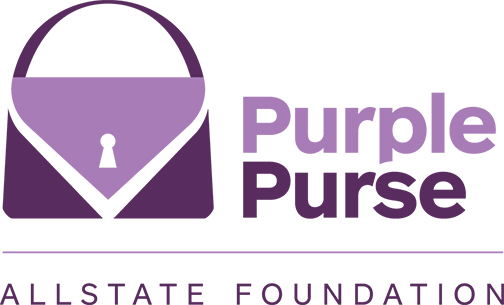{This is a compensated campaign in collaboration with Allstate Foundation® and Latina Bloggers Connect. The story below is real and recounted as I remember.}
“Get in the bathroom and whatever happens, don’t come out. He won’t come after you.” Those were the words my friend said to me when her boyfriend showed up and was furious because we were trying to move her out of their apartment.
I was only 18 and as naive as can be but I did always wonder why my beautiful, warm-hearted friend stayed with her controlling boyfriend. Yes, he would let her go out with friends but she would pay the price if she was gone too long. He would ‘let’ her work but she’d end up quitting any job if he didn’t like it or get her fired for harassing her at work.
“You don’t need money. I’ll support you,” he’d promise her. And he did. He gave her whatever money she asked for as long as he was in charge. One day, she decided it was time to go.
[Tweet “#Domesticviolence affects 1 in 4 women in her lifetime. #PurplePurse”]
I never saw him hit her before that summer day. She never told me how bad it ever really got and I don’t think she ever would have if I hadn’t seen it with my own eyes. We locked the sole entry door to that one-bedroom apartment and began to pack her things. I wanted to be brave but I was scared. He begged and pleaded with her to just let him inside for his TV so she wouldn’t take it with her. I don’t remember how long he was on the other side of the door before she caved. That’s when she turned to me and said, “Get in the bathroom and whatever happens, don’t come out. He won’t come after you.”
Only a few moments went by before I heard a thud and then a crash and her hollering. “Stop! Stop!” I came out of the bathroom and stood in the bedroom doorway in shock as I watched him pick up my friend by her hair and then thrust his knee into her stomach once, then twice, and then, he threw her against the refrigerator. She fell to the ground almost motionless. He looked up and right in to my eyes. Somehow, I raced across the living room, out the front door, across the parking lot to the only pay phone in sight. (We didn’t have cell phones on us, then). I dialed 911 for the police to come right away. I returned to find my friend clinging onto a the pole in front of her apartment door as he tried to pull her off to get her in the car with him. As I began to yell, “Help us! Someone help us!” He gave up and sped away.
I waited with my friend for the police to arrive. They questioned her. I could tell by her answers that it wasn’t the first time she had been questioned about this. They asked whatever they needed to, filled out some paperwork and gave her some information. When it was all over, I felt relieved. I thought to myself, “Finally! She’s free from him.”
Less than a month later, she was living right back with him. I remember walking up to that same apartment door, opening it and seeing his smug face on the couch. He began to apologize. I couldn’t take it. I left. I begged her to leave. I begged her to just walk away. She stayed.
[Tweet “Financial abuse happens in 98% of all #domesticviolence cases. #PurplePurse”]
She never told me why she stayed. Maybe she felt that she needed him financially. She had no money or place of her own. Shortly after, I moved away to go to college. I returned home one Thanksgiving break and visited her. She found her way out of that abusive relationship. We didn’t stay in touch much longer. There was no social media platforms for convenience. Today, l wonder about her. I pray for her that she didn’t ever find her way back to any kind of abuser.
My friend’s story isn’t an unusual one. Domestic violence and financial abuse often go hand-in-hand, but nearly 8 in 10 Americans have not heard much about financial abuse as a form of domestic violence. The number one reason domestic violence survivors stay, leave or return to an abusive relationship is that they don’t have the financial resources to break free.
I’ve shared this story only a handful of times. Even though it wasn’t me on the other end of his abuse, it makes me nervous just talking about it. Honestly, she’s not the only person close to me who has been a victim of domestic violence. Two-thirds of Americans believe that domestic violence is a serious problem, yet just over 1 in 3 have ever talked about it. Allstate Foundation Purple Purse aims to make it fashionable to talk about this difficult topic. Start the conversation.
Kerry Washington, Emmy-nominated actress and domestic violence activist, is serving as a Purple Purse ambassador to help raise awareness for the cause and has designed a limited-edition purple purse. The purse was created to represent the center of a woman’s financial domain and to inspire women to reclaim their financial independence.
The purse is being used by the nonprofits participating in the Allstate Foundation Purple Purse Challenge to spark conversation about domestic violence and financial empowerment in their communities. The Allstate Foundation is investing more than half a million dollars in the Purple Purse Challenge. The more donations each nonprofit gets, the more it can compete for Allstate Foundation incentive funding. Go to PurplePurse.com between now and Oct. 3 to join the Challenge and help a nonprofit near you.

I don’t know how my friend is doing today but you and I can help ensure domestic violence survivors – likely someone you know, too – aren’t financially trapped in an abusive relationship by joining the Purple Purse Challenge. Open your heart and wallet to stand up for survivors and the organizations that serve them at PurplePurse.com.
If you or someone you know needs immediate help, call the National Domestic Violence Hotline 1-800-799-SAFE (7233) or TTY 1-800-787-3224.





